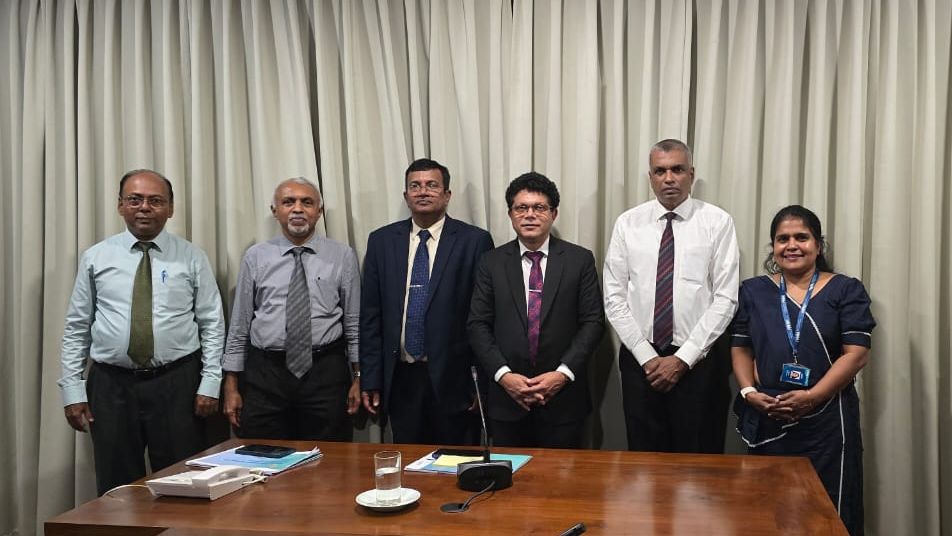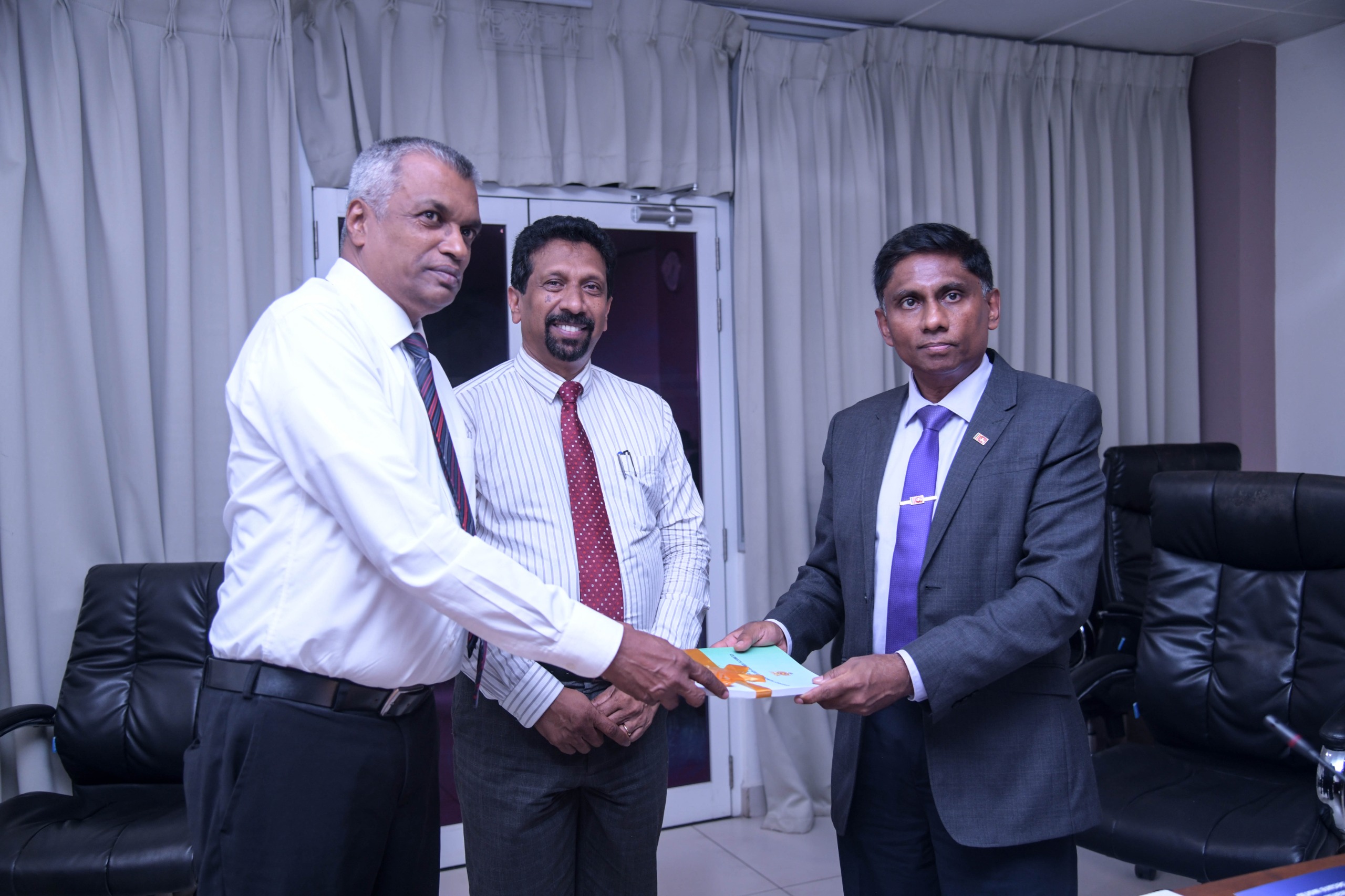On this day, the strategy was officially handed over to the Secretary of the Ministry of Environment, Sri Lanka, Mr K. R. Uduwawala by Mr Anura Sathurusinghe, the National Project Coordinator of the 2nd Readiness Project. The Additional Secretaries and Directors of the Ministry of Environment and other officials, the accredited and pipelined Direct Access Entities (DAE) of GCF including the DFCC Bank, Hatton National Bank and the Commercial Bank, few UN Agencies and selected non-profit organizations were present at the occasion to witness the launch. The two eminent professors who molded the strategy aligned with national priorities, Prof Buddhi Marambe and Prof Thusitha Sugathapala explained the Strategic Framework for Sri Lanka's Climate-Smart Green Growth Strategy. The event was held in the Conference Room of the Ministry of Environment. This was also time to announce the official closure of the 2nd NDA Readiness Project in Sri Lanka and Mr Sathurusinghe have taken the participants through the deliverables and thanked all the stakeholders, especially the Government of Sri Lanka for their backing.
 Prior to the launch, the Project management Unit (PMU) met with the newly appointed Minister of Environment, Dr Dammika Patabendi and the Deputy Minister, Mr Anton Jayakodi to introduce the Climate Smart-Green Growth Strategy and Investment Plan at a meeting held on 19 March 2025 at the Minister of Environment.
Prior to the launch, the Project management Unit (PMU) met with the newly appointed Minister of Environment, Dr Dammika Patabendi and the Deputy Minister, Mr Anton Jayakodi to introduce the Climate Smart-Green Growth Strategy and Investment Plan at a meeting held on 19 March 2025 at the Minister of Environment.
The 2nd Readiness Project
The "2nd NDA Readiness Project 2021" marks the next chapter in Sri Lanka’s journey under the GCF Readiness and Preparatory Support Programme. Building on the solid groundwork established by the first Readiness Project (2019-2021), this initiative is designed to bridge existing gaps and further empower national entities in their climate finance efforts. At its core, the project aims to strengthen the capacity of Sri Lanka’s NDA, DAEs, and GCF project programme stakeholders to seamlessly access and manage climate finance.
While Ministry of Environment (MoE) is the NDA to the GCF and the GWPO was appointed by GCF as the delivery partner of this project titled “Strengthening the capacity of DAEs, NDA and GCF project programming stakeholders in Sri Lanka to access climate finance through enhanced strategic frameworks for stakeholder engagement and a strengthened project pipeline”. GWP SAS Regional Secretariat based in Sri Lanka coordinated the project through a PMU facilitated improving the efficiency and strengthened the country ownership of the project and its outputs. The project officially launched on 1 June 2022 and concluded on 31 March 2025, with an estimated total cost of USD 813,548.
The strategy
The Climate Smart Green Growth Strategy and Investment Plan was the flagship activity of the 2nd Readiness Project Sri Lanka that allows in creating an enabling environment for investments in green growth through climate adaptation and mitigation interventions. A key highlight of the strategy is that it is “climate smart”. Hence, the green growth pathway and key investment programmes are responsive to current and further climate trends and impacts. The strategy development consultation process was a yearlong process kick started with a vision setting workshop and completed through a validation workshop. Series of workshops as well as the numerous rounds of focus group discussions held allowed stakeholders to contribute to the development of different components of the strategy. Special attention was given to the existing key documents that are being already published in the country. These have been accounted for ensuring alignment and ownership of the strategy.
The vision:
“To be a nation with healthy ecosystems, robust livelihoods, and sustainable development by embracing climate-smart green growth principles and low-carbon development for the well-being of present and future generations”
What next
The strategy sets a pathway for robust, climate-smart initiatives across sectors, particularly energy, urban planning, industry, agriculture, and education, amounting to a planned investment of USD 49 billion by 2050. Achieving the ambitious vision of the strategy requires overcoming institutional, financial, and technical barriers and ensuring active stakeholder engagement, vital to building capacity, securing finance, and embedding climate-smart principles across all levels of governance.
